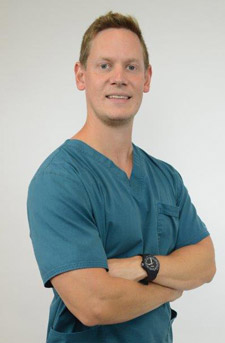By Jonathan Papp, PT, DPT, ITPT, Cert MDT
 For decades, a concussion was thought of as a minor condition that athletes dealt with after an impact to the head while participating in contact sports. People believed that symptoms would resolve quickly and cause no lasting effects. You would often see athletes return to sporting activities after only a brief break on the sidelines, telling coaches, “I feel fine. I’m ready to go back in!” It seemed like if you did not lose consciousness from the impact of the hit, nothing serious had occurred, and there was no reason to not be able to return to your sport.
For decades, a concussion was thought of as a minor condition that athletes dealt with after an impact to the head while participating in contact sports. People believed that symptoms would resolve quickly and cause no lasting effects. You would often see athletes return to sporting activities after only a brief break on the sidelines, telling coaches, “I feel fine. I’m ready to go back in!” It seemed like if you did not lose consciousness from the impact of the hit, nothing serious had occurred, and there was no reason to not be able to return to your sport.
Thankfully, times have changed! Many of these old thoughts and views are becoming a thing of the past. Thanks to current evidence based research, we now have a much better understanding of what a concussion truly is, and how to help individuals and athletes alike recover!
Based on the Centers for Disease Control and Prevention (CDC), a concussion is defined as “a type of traumatic brain injury—or TBI—caused by a bump, blow, or jolt to the head or by a hit to the body that causes the head and brain to move rapidly back and forth. This sudden movement can cause the brain to bounce around or twist in the skull, creating chemical changes in the brain and sometimes stretching and damaging brain cells.”
In fact, the symptoms that individuals deal with after a concussion can be severe and even long lasting. They may or may not experience a loss of consciousness. However, impact to the head is not the only cause of a concussion and athletes aren’t the only individuals that experience concussions.
While the majority of individuals that sustain a concussion due recover in days or weeks, approximately 10-20% of individuals experience Post-Concussion Syndrome (PCS), which occurs when symptoms persist beyond a normal window of recovery and become chronic in nature. Some common symptoms that individuals experience after sustaining a concussion may include:
- Headache
- Nausea/vomiting
- Balance problems
- Dizziness
- Fatigue/ Drowsiness
- Changes in sleep patterns
- Sensitivity to noise and light
- Irritability
- Sadness
- Nervousness
- Feeling “slow/foggy”
- Difficulty concentrating/remembering
- Visual problems
Ignoring these symptoms and hoping they will go away with time is not the proper solution. A lack of treatment for these concussion symptoms can lead to an even longer period of time dealing with these issues and achieving recovery. In addition, it could potentially increase the risk of sustaining subsequent concussions if you experience another blow to the head or jolt to the body, and those symptoms can be even more severe and longer lasting as a result.
If you have sustained a concussion, and have experienced many of these symptoms following the episode, and/or continue to have lingering effects, and still are not quite feeling yourself, we are here to help!
Resources
Click on the links below for additional information.
- Centers for Disease Control and Prevention (CDC): What is a Concussion?
- ImPACT Applications, Inc.: Post-Concussion Symptom Scale
About the Author
 Jonathan Papp, PT, DPT, ITPT, Cert. MDT
Jonathan Papp, PT, DPT, ITPT, Cert. MDTDoctor of Physical Therapy
ImPACT Trained Physical Therapist
Certified in the McKenzie Method (Mechanical Diagnosis and Therapy)
Phone: 609-245-7420
Jon is a Senior Physical Therapist and works in the RWJ Rehabilitation office in Lawrenceville, New Jersey. He has a special interest in treating individuals recovering from concussion, but has many years of experience treating a variety of musculoskeletal and neurological conditions. Jon completed his BS in Exercise Science and Sports Studies at Rutgers University in New Brunswick, New Jersey and completed his Doctor of Physical Therapy (DPT) through a joint program between Rutgers and the University of Medicine and Dentistry of New Jersey (UMDNJ). During his spare time, Jon enjoys spending time with his family, watching movies, going hiking, biking, and working out.
The RWJ Rehabilitation Lawrenceville office looks forward to assisting you, whether a recovery from concussion, or many other musculoskeletal and neurological conditions. Please call our office at 609-245-7420 to schedule an appointment.